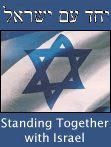Halftime Assessment of the War in the Middle East
Save this online in Del.icio.us. [?] Vote For this PostHalftime Assessment is an article graciously provided by Elliot Chodoff, of Middle East on Target.
Halftime Assessment
by Elliot Chodoff
Having just today been released from reserve duty after 37 days, there hasn’t been much time to reflect on the events that took place this summer, but one thing is clear: the war with Hizbullah is not over, it has only paused for the halftime show. As the UNIFIL based international force (farce?) takes the field for a short interlude, now is the time to assess the results of the first part of the war that we have fought over the past six weeks.
Israel neither won the war nor did it lose, but a halftime tie with Hizbullah does not represent an impressive performance by the IDF. True, the IAF inflicted heavy damage on Hizbullah targets throughout Lebanon, IDF special forces executed a number of operations that were breathtaking in their daring, and the regular and reserve IDF ground troops generally performed very well, outfighting Hizbullah’s best guerrillas in every encounter. Nonetheless, the result was not a battlefield victory, and in guerrilla warfare, if you are not winning, you are losing.
A number of subjects (beyond the general question of quality of leadership) bear scrutiny in analyzing the outcome of the war, and we will elaborate further on each next week after catching up on some much needed sleep.
First, the over reliance on airpower to provide a quick, clean victory over Hizbullah proved to be a gross error. The reasons for this are many, including the high representation of air force generals on the IDF general staff. Air forces have been dreaming of making ground war obsolete for 80 years, and the image of winning a war without committing ground troops to the battlefield is enticing. Once again, the dream has not turned to reality.
Second, the ground forces were not mobilized or deployed quickly enough or in great enough concentration to gain a decisive battlefield victory. In the early stages of the war, small units were inserted and extracted from Lebanon, often having to fight repeatedly over the same real estate, as Hizbullah utilized the interim period to reinforce its fighters in South Lebanon. Infantry and tank forces were sent into battle with insufficient ground support, and with great hesitation. The result was often that Hizbullah enjoyed local firepower superiority, especially having equipped its forces with an enormous quantity of antitank missiles, which took a heavy toll of IDF tanks.
Third, the katyusha missile attacks against Northern Israel were not prepared for seriously by the government, despite the fact that the IDF was well aware of the threat, in both quantitative and qualitative terms. For years, Hizbullah has amassed a missile arsenal of some 15,000 rockets, some with ranges adequate to reach Tel Aviv. Outside the IDF, the general attitude was that they would never use them, or that they would be destroyed by the IAF within a few days. After a month of fighting and aerial bombardment, over 200 rockets were fired into Israel on the last day before the cease fire.
The government and the IDF leadership have the rest of the halftime break to assess the errors of the first half and to make as many changes in the game plan as they can to assure that the score at the end of the next half leaves nobody in doubt as to Israel’s overwhelming victory.
If you want to read more/follow our coverage of Canadian politics, consider our free newsletter (scroll all the way down for the sign-up).
Here are some related articles:
Ceasfire: Israel gets the Shaft
Mediocre Media Botch War Coverage
Media Are Horrible
This article and related articles are archived in the topical categories Canada's foreign affairs, Canadian Israel, and terrorism.Go back home






1 Comments:
I can't believe that Israel went with the tactic of airstrikes against a guerilla force. Was that really the plan?
Terrorists have to be rooted out, destroyed, and accounted for. That's grim and dirty work required of ground troops, and I thank God I don't have to do it. But no bomb is precise enough to get militants that are on the move.
Post a Comment
<< Home